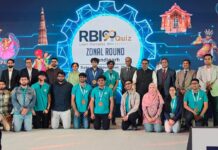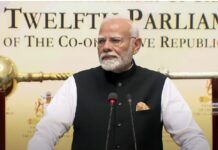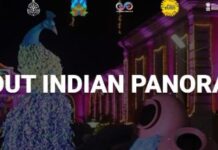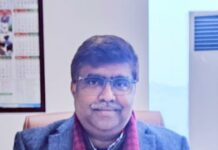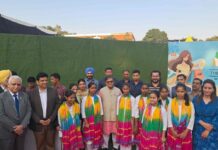6 day International School on Neurobiology of Addiction Begins at PU
Panjab University is hosting the International Brain Research Organization (IBRO)-Asia Pacific Regional Committee (APRC) supported school on the theme ‘Neurobiology of addiction’ from August 23-28, 2021.
The six day school plans to provide theoretical and practical training on wide ranging topics related to understanding biology of addiction to young researchers from Asia-Pacific region and representing India, Malaysia, Pakistan and Bangladesh. The school would cover various topics from basic understanding of addiction, role of genetics and epigenetics. In addition psychological and clinical aspects related to substance abuse would also be discussed. The faculty for the school includes eminent scientists and clinicians in the field drawn from various parts of the globe and has 12 speakers from overseas.
The event was inaugurated today by Prof. Ishan Patro, Former Vice Chancellor, Ravenshaw University, Cuttack, Odisha. Prof. Patro is an eminent neuroscientist who has contributed immensely in the understanding of the role of glia in brain health and in neurological disorders. He appreciated the efforts of Panjab University in organizing school on a theme highly relevant to society keeping in mind that a large number of our younger generation is getting addicted to drugs and the internet. He encouraged the participants to take up research in this neglected area in India. Dr. Patro emphasized increase in additive behavior during the present pandemic
Dr. Pike-See Cheah. Chair, IBRO-APRC congratulated Panjab University for organizing school on a highly relevant topic that has affected millions worldwide. She motivated the participants to learn from the experts and pursue research in the area of addiction biology. She shared with the participants various activities of IBRO along with funding opportunities for young budding neuroscientists.
The plenary lecture was delivered by Prof. Subhash C Pandey from Center for Alcohol Research in Epigenetics, Department of Psychiatry, University of Illinois at Chicago (USA) who talked about the role of genetics and epigenetics of alcohol addiction. He has identified molecular signatures that are involved in the development of acute and chronic alcohol addiction behavior. He emphasized on the role of cutting edge technology involving CRISPER-dCas9 in treating alcohol abuse disorder.
A keynote lecture by Prof. Peter K Kalivas, Department of Neuroscience shared his work related to elucidation of molecules and neurocircuitry in the brain that underlie drug addiction. He found specific cell types that are involved in drug seeking behavior particularly involving D1 and D2 medium spiny neurons. He also shared his research wherein he has identified new brain mechanisms that have become potential pharmacotherapeutic targets for treating addiction in clinical trials especially N-Acetyl cysteine that shows promise in drug seeking behavior.
Other prominent speakers included Dr. Neerja Singh, Clinical Director, Department of Human Services, Minnesota who spoke on addiction as a choice or a disease or both, She highlighted that it begins as a choice and is dependent on genetic and psychological factors and then results in disease. Dr. C.S. Gautam, Former Professor of Pharmacology, Government Medical College and Hospital, Chandigarh discussed Drug Menace as Curse of our modern times. He also discussed types of drugs abused and legal concerns related to addiction. He mentioned that more than 50 % ailments in the city related to liver are the result of alcohol abuse. He mentioned that drugs are a gateway to crime.
Prof. Rajat Sandhir, organizer of the event said that the event would help in sharing expertise and knowledge and would provide a platform for inter-institutional collaboration to improve the understanding of addiction to substances and even food. It ultimately may be a step closer in preventing substance abuse.


